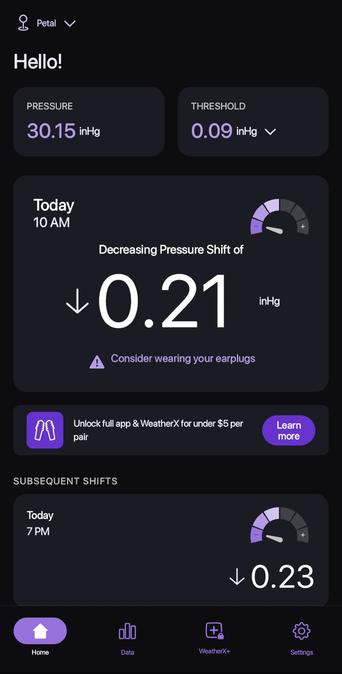#Flare からの連携テスト!
#flare
Bild der Woche: Sonneneruption der höchsten Klasse. Magnetische Spannungen verursachen X-Flare auf der Sonnenoberfläche. #Sonne #Strahlungsausbruch #Sonnensturm #Flare #SolarFlare
https://www.scinexx.de/fotos/sonneneruption-der-hoechsten-klasse/
Flare is an Action RPG game (engine). It's open source, so I thought why not try and make Codex make it accessible. So, my first steps into the game!
January 31, 2026 - Up to 50.000 people took to the streets in Torino, Italy, against the eviction of squatted social center Askatasuna. When riot police attacked the demonstration, protesters in black bloc fought back, torching a police van and injuring over a hundred cops.
#torino #turin #italy #italia #blackbloc #policecar #acab #resistance #fireworks #flare #teargas #riot #police #video #antifa #antifascism #antifascismo #azioneantifascista #fire #squat #squatting #squatters #askatasuna
X8 solar flare, Wavelength: 304Å #space #flare #sun #solarflare
Isabel giving us the chill vibes while in the warmth of the late afternoon sun here in Valencia.
Sony A7rIV
Sigma 65mm 2.0 DG DN
1/400th | f 2.8 | iso 100
Available light
#brandonjacksonphoto #valenciaphotographer #valenciafotografo #model #portrait #mood #flare
Colombia entra al radar global de la producción creativa | #RollingStoneES
https://es.rollingstone.com/colombia-entra-al-radar-global-de-la-produccion-creativa/
flare by manyfires
https://tmblr.co/Z7VXvxip7jYy0i00
#hike #hikes #hiking #pnw #pacificnorthwest #landscape #analog #film #mountrainiernationalpark #mountrainier #washington #sprayparklooptolmiepeak #park #loop #sprayparkloop #tolmiepeak #nikonfm #35mm #sunrise #flare #mountain #eunicelake #flickr #thingsdavidlikes
and just like that, my #flare app went down, i don't know why
my first major discovery of the year - i was able to plug my #pixelfed account into #flare
ay yoo, #fediverse really works. wait, have a pic.
Hey #Fibromyalgia fam, Your sudden #flare might be the #weather. ⛈️ We have an intense drop in pressure today in #Mississippi. Rapid drops often trigger #migraines & deep aches from conditions like Meteropathy. If you're hurting, check the barometric pressure, you might be weather-sensitive. 💗
A „magnetic avalanche“ on the #Sun! At the end of 2024, ESA’s #SolarOrbiter was lucky to witness a strong solar #flare – and observed the events leading up to this firework with unprecedented precision. Apparently, small restructuring processes in the Sun's magnetic field build up like an avalanche – and then discharge explosively.
Read more here:
https://www.mps.mpg.de/magnetic-avalanche-on-the-sun
Paper published today:
https://www.aanda.org/articles/aa/full_html/2026/01/aa57253-25/aa57253-25.html
We couldn't have hoped for a better advertisement for this year’s public lecture series than last night's spectacular show of northern lights!
The talks will deal with all the exciting aspects in the fiery relationship between the Sun and the Earth (in German). So if you want to learn more about the Sun, the aurora borealis, the dangers of solar storms, about space weather forecasting and more, join us for
"Im Feuerwerk der Sonne" https://www.mps.mpg.de/im-feuerwerk-der-sonne
The series kicks off with the first talk by Sami Solanki on Thursday, 12 February 2026 at 19:00h in the auditorium at MPS Göttingen (OSM: https://www.openstreetmap.org/way/253918007#map=19/51.560282/9.948555)
#Sun #spaceweather #flare #CME #solarstorm #aurora #auroraborealis #OeffentlicherVortrag #MPSGoettingen #Goettingen
Na f-droid jsem objevil aplikaci #Flare.
Umí Mastodon, Bluesky, X, Misskey a RSS. Umí smíšenou timeline a umí sdílet příspěvek na všechny platformy. Právě to zkouším. Jestli to bude fungovat, můžu pár appek odinstalovat.
Die einzelnen Vortragstermine unserer Vortragsreihe "Im Feuerwerk der Sonne" bekommt ihr auch direkt als Feed in euren Reader oder Kalender über
RSS: https://www.mps.mpg.de/aktuelles/oeffentliche-vortraege.rss
ICS: https://www.mps.mpg.de/aktuelles/oeffentliche-vortraege.ics
ATOM: https://www.mps.mpg.de/aktuelles/oeffentliche-vortraege.atom
Auch @www.mps.mpg.de.aktuelles.oeffentliche-vortraege.rss hat die Infos nochmal für euch.
@www.mps.mpg.de.feeds.pressemeldungen.rss
#Göttingen #Sonne #Sonnenphysik #Sonnensturm #Flare #CME #Weltraumwetter #Erde
This year’s public lecture series deals with the fiery relationship between Sun and Earth. In German. Looking forward to topics like aurora borealis, dangers of solar storms, space weather forecasting and more. www.mps.mpg.de/im-feuerwerk... #Sun #spaceweather #flare #CME #solarstorm ☀️🔭🛰️
Edmonds, WA, December 2025
Nikon Zf | Thypoch Simera 35mm 1.4
#photography #street #streetphotography #urban #urbanphotography #architecture #architecturalphotography #sun #flare #sunstar #diffractionspikes #blackandwhite #monochrome #pnw #nikon #nikonzf
@thibaultamartin @postmarketOS @phosh
on top of what was already mentioned:
- #Iotas for notes (with nexcloud sync)
- #foliate for ebooks (especially fullscreen where it now turn on dimming, etc)
- #gapless for music
- #flare for signal
(Version françæ) 'Puisse læ lumière dal [monde] briller sur toi'
#Photography #Monochrome #BlackAndWhite #21StCentury #ThroughTheLens #Art #ArtOfLight #Bw #Photo #DailyPhoto #BwPhoto #BlackAndWhitePhotography #Flare #Light #Sun #Plant #Autumn #Sunrise #Europe #France #LoireValley
#Photographie #Monochrome #NoirEtBlanc #XXIemeSiecle #ATraversLobjectif #Art #LartDeLaeLumiere #Nb #Photo #PhotoDalJour #PhotoNetb #PhotographieEnNoirEtBlanc #Flare #Lumiere #Soleil #Vegetal #Automne #SoleilLevanx #Europe #France #ValDeLoire












